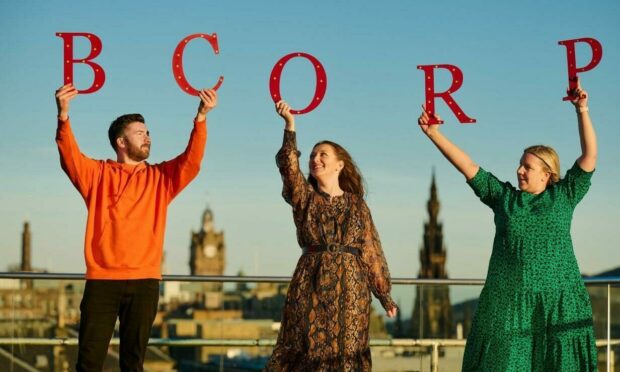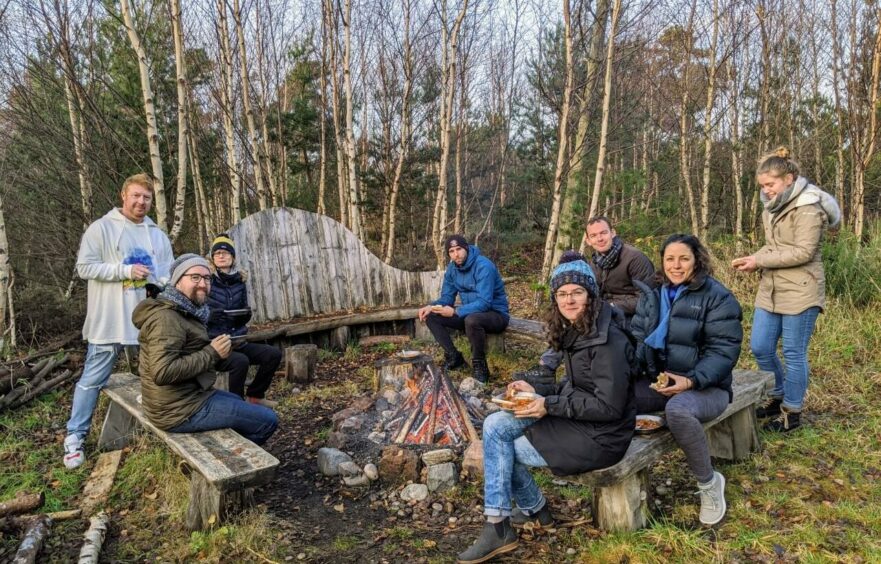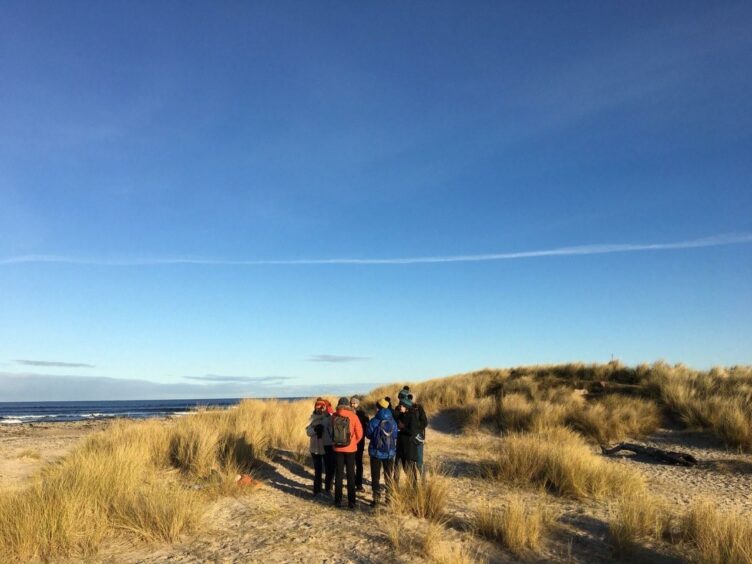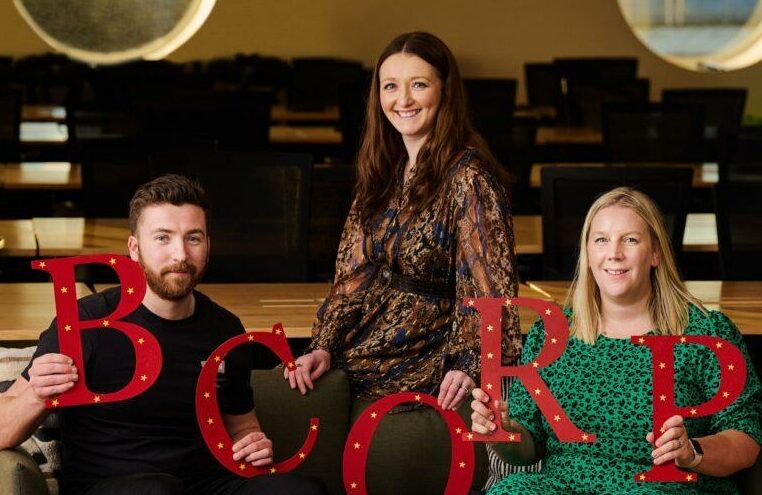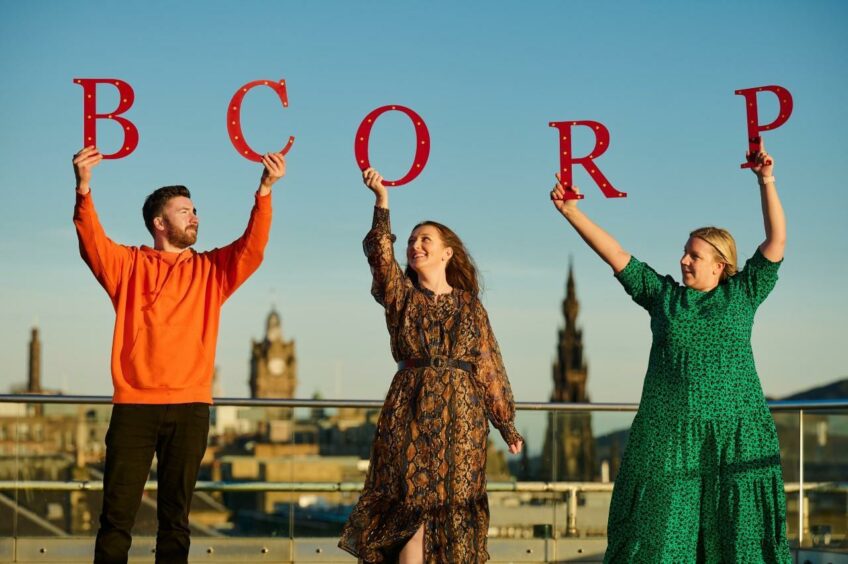What is the process to achieve B Corps status and how have businesses in north and north-east Scotland responded to the rigorous demands to achieve it?
What is B Corp certification?
Certified B Corporations, or B Corps status, signifies a business meets high standards of verified performance, accountability and transparency on factors from employee benefits and charitable giving, to supply chain practices and input materials.
There are currently more than 4,400 Certified B Corporations in 70 countries and 150 industries.
Initial assessment requires a minimum verified score of 80 points to continue with the process.
The B Corp community ranges from sole proprietors to publicly-traded companies. The majority of B Corps are small-to-medium-sized businesses, however, larger enterprises are coming on board as well.
How much does it cost?
Using the B Impact Assessment is free and a one-off submission fee of £250 (plus VAT) is payable when a company is submitted for certification.
Certification fees are paid annually and there are fee bands in place to ensure B Corp certification is affordable.
Fees start at £1,000 and range to £50,000 for businesses with a revenue of more than £750m.
B Corps in north and north-east
- Prickly Thistle tartan manufacturers in Dingwall, which certified in February this year
- The House of Botanicals, a spirits specialist, was the first firm in Aberdeen to win the accreditation in January
- Nc’nean Distillery in Drimnin in Morvern also achieved B Corp in January
- ELE Global, a communications agency based in Aberlour, certified in 2021
- Bruichladdich distillery on Islay certified in 2020
- Living Alive sustainability consultancy in Findhorn, which certified in 2019
- Aberdeenshire foods producer Macphie became one of the first companies in the UK to achieve B Corporation certification in 2015.
Nc’nean head of marketing, Sasha Holt, told the Press and Journal the B Corp process “forces companies to look comprehensively at their environmental and social impacts so they can make significant improvements before becoming accredited.”
She added: “The reception to Nc’nean becoming certified as a B Corp has been excellent, showing just how much awareness of B Corp is growing among consumers.”
There are currently 665 certified B Corps in the UK, representing £12bn in combined revenue, with 39,000 employees across 55 industries.
Of these, there are currently around 30 B Corps based in Scotland.
Who is B Lab?
Status is awarded by B Lab which was founded in the US in 2006 to pioneer “a new
stakeholder-centric way of doing business”.
It is backed by a number of philanthropists including Jerry Greenfield, the founder of ethical ice-cream brand Ben and Jerry’s.
It leads the certification process for the B Corp global network.
B Lab UK is the non-profit organisation behind the global B Corp movement in Britain.
B Corps are required to undergo the verification process every three years in order to recertify.
How do businesses become B Corp accredited?
In order to achieve certification, a company must:
- Demonstrate high social and environmental performance by achieving a B Impact Assessment score of 80 or above and passing a risk review
- Make a legal commitment by changing corporate governance structure to be accountable to all stakeholders, not just shareholders and achieve benefit corporation status if available in their jurisdiction
- Exhibit transparency by allowing information about performance measured against B Lab’s standards to be publicly available on their B Corp profile on B Lab’s website
- Multinational corporations must also meet baseline requirement standards
How long does B Corp certification take?
The length of the certification and verification process — from beginning the B Impact Assessment to fulfilling the legal accountability requirement to finishing with B Corp Certification — varies based on a company’s size and complexity.
Small to medium-sized companies should expect a waiting time of six to eight months.
Large multinationals, companies with many related entities, or businesses operating in controversial industries, should expect a longer verification process.
Start-ups or smaller companies may pursue Pending B Corp status allowing time to prepare.
Scotland CAN B to galvanise business
The Scotland CAN B initiative is a partnership between the Scottish Government and B Lab UK, which was launched by First Minister Nicola Sturgeon in 2018 with the aim of catalysing a shift in the nation’s approach to business.
Scotland CAN B Programme manager & co-founder of B Corps certified consultancy Living Alive, Elle Adams, noted Scotland CAN B is working with business leaders, enterprise support intermediaries, business membership organisations and policymakers to build a “nationwide culture of using business as a force for good”.
CAN B intends to launch a “business for good training programme” similar to one launched in Edinburgh to meet demand across Scotland during the year ahead, with the Highlands and Moray high on the list.
Muckle Media first Scottish PR agency to achieve B Corp status
Scottish PR agency Muckle Media, which is based in the Central Belt but whose Inverness team serves clients across the Highlands and Islands, is now officially a B Corp organisation.
B Corp Certification demands high standards, notes Muckle Media, as well as verified performance in a “huge range of social and environmental issues” from evaluating an organisation’s mission to reviewing employee benefits and assessing waste disposal.
“Complete transparency and accountability” are required throughout the process, which involves working with an assessor and evidencing a broad selection of ethical business processes.
‘Becoming a B Corp doesn’t fix everything overnight’
“What’s great about the B-Corp process is that it allows you to benchmark your business against a framework for ethical business,” said Muckle Media managing director, Nathalie Agnew.
“Becoming a B-Corp doesn’t fix everything overnight and very few businesses achieve an exceptionally high score in their first assessment, but it shows you where you are having a positive impact and where you can improve.
“The legal requirement in the UK means you need to change your articles of association, to declare you don’t just consider shareholder profit in decision making.
“This can be a major undertaking, especially for larger and listed companies that might require board and shareholder approval and also for challenger brands it may limit exit options further down the line.
“Overall though, I’d say being a B-Corp is a great opportunity for brands that want to be part of a positive, ethical movement.”
